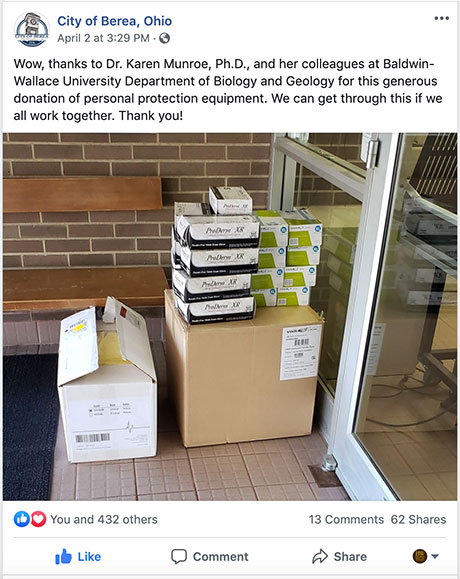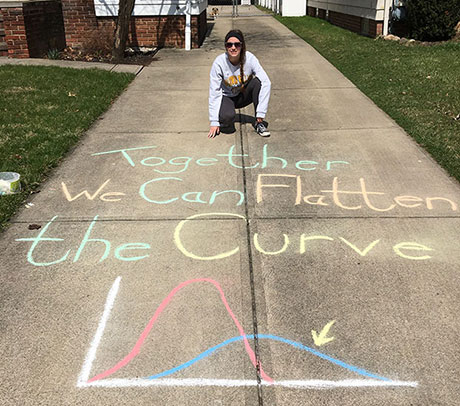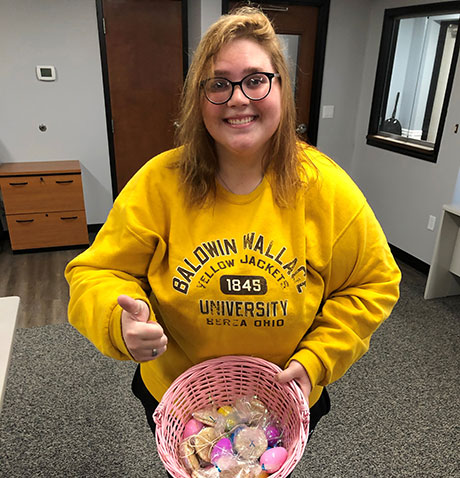While the beloved children's TV host Fred "Mister" Rogers advised children to "look for the helpers" in troubled times, many in the BW community are looking to be the helpers as the world battles COVID-19.
 Students are engaged in a friendly service competition with other colleges in lieu of summer alternative break trips.
Students are engaged in a friendly service competition with other colleges in lieu of summer alternative break trips.For BW's David & Frances Brain Center for Community Engagement, social distancing mandates require new and different ways to support the University's mission of empowering students to become "contributing, compassionate citizens."
Summer alternative breaks may be a no-go, but BW students are currently competing with nine other colleges to do good right where they are through the "National Active Citizen Challenge."
 The goal, through April 30, is to make the largest community impact through random acts of kindness and philanthropy. The winning school will receive a scholarship for their Alternative Breaks program.
The goal, through April 30, is to make the largest community impact through random acts of kindness and philanthropy. The winning school will receive a scholarship for their Alternative Breaks program.
To date, BW is in second place with students contributing in a variety of ways including:
Faculty leading the Jacket Philanthropy Program (JPP) courses, where community outreach is baked in as experiential learning, have had to rethink required on-site service hours at Northeast Ohio nonprofit partners.
ENG 309 Grant Writing co-faculty Annie Heidersbach '87 and Dr. Paul Putman devised a new plan to adapt service to distance learning, calling it "Corona Acts of Kindness Everywhere" or "CAKEs."
 "We are convinced that BW students are among the most creative and compassionate citizens. Thus, we encourage you to complete a form of service to your community."
"We are convinced that BW students are among the most creative and compassionate citizens. Thus, we encourage you to complete a form of service to your community."
Students were quick to rise to the challenge.
"As a CAKE activity, I baked cookies for the employees at my mom's company who must work through the lockdown. (Using gloves, of course!)," reported Grace Lingerfelt.
The culminating ceremony for all JPP courses, which competitively distributes $20,000 in grant funding to community partners based on proposals written by students, will also carry on as a live, online event on April 28.
Of course, helping means taking care of your own family, too.
Within the extended BW "family," generous alumni and friends quickly established a student emergency fund.
The speedy launch was aimed at meeting the immediate need. Within two weeks, the fund was accepting requests for small grants, averaging $200 or less, to help address the fallout of lost jobs and other financial hardships related to the COVID-19 crisis.
As Christy Walkuski, director of the Brain Center, explained to Crain's Cleveland, BW is reaching out to every applicant.
"Certainly, the funding is the foundation here, but I think also, just this personal outreach and letting students know we're here, we can help them, connect them to resources," Walkuski said. "Even though they're not on campus, we're still a community. We're still here to support them."
And many students are paying it forward, joining together as helpers and good neighbors when the need has never been greater.